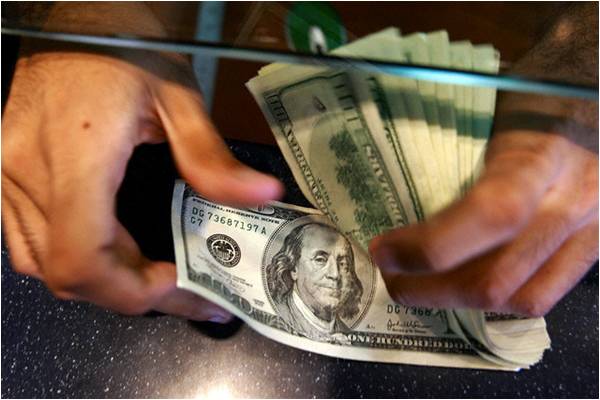
Pakistan Customs is "not responsible" for curbing smuggling at international borders and "its role is limited to the cities only", the Customs Department's head of operations said. He again minimised the role of smuggling in the current, record-high exchange rate of the greenback against the Pak Rupee.
Mukarram Jah, Member Customs Operations at the Federal Board of Revenue (FBR), argued that “people hoarded the dollar in hopes of getting better returns due to weakening economic conditions,” adding that the role of currency smuggling in the ongoing dollar shortage was being "grossly exaggerated" in the local media by "vested interests".
According to Jah, people are hoarding the currency in large quantities due to the ever-increasing gap between the interbank and black market or 'grey market' rates of the dollar.
After being unable to sustain the rupee-dollar rate at Rs. 231 to a dollar, the government surrendered administrative control of the exchange rate – leaving it at the mercy of market forces, which pushed its value down to nearly Rs. 271 to a dollar, a record-breaking devaluation in the span of just one week.
Pakistan continues to face a serious currency crisis due to uncontrollable imports whose cost is unsustainable because of limited reserves generated by negligible exports and dwindling remittances. Outflow requirements are not being met by inflows for years, as a result of which the country requires foreign aid and financial assistance to survive.
Jah argued that in the ongoing scenario, average people started hoarding the currency and began avoiding formal banking channels to get better currency exchange rates. This, according to him, was more liable for the dollar shortage than any currency smuggling going on.
He also clarified that Pakistan Customs has nevertheless redoubled its efforts to contain smuggling, with the number of seizure cases and confiscated amount increasing every month.
Mukarram Jah, Member Customs Operations at the Federal Board of Revenue (FBR), argued that “people hoarded the dollar in hopes of getting better returns due to weakening economic conditions,” adding that the role of currency smuggling in the ongoing dollar shortage was being "grossly exaggerated" in the local media by "vested interests".
According to Jah, people are hoarding the currency in large quantities due to the ever-increasing gap between the interbank and black market or 'grey market' rates of the dollar.
After being unable to sustain the rupee-dollar rate at Rs. 231 to a dollar, the government surrendered administrative control of the exchange rate – leaving it at the mercy of market forces, which pushed its value down to nearly Rs. 271 to a dollar, a record-breaking devaluation in the span of just one week.
Pakistan continues to face a serious currency crisis due to uncontrollable imports whose cost is unsustainable because of limited reserves generated by negligible exports and dwindling remittances. Outflow requirements are not being met by inflows for years, as a result of which the country requires foreign aid and financial assistance to survive.
Jah argued that in the ongoing scenario, average people started hoarding the currency and began avoiding formal banking channels to get better currency exchange rates. This, according to him, was more liable for the dollar shortage than any currency smuggling going on.
He also clarified that Pakistan Customs has nevertheless redoubled its efforts to contain smuggling, with the number of seizure cases and confiscated amount increasing every month.

